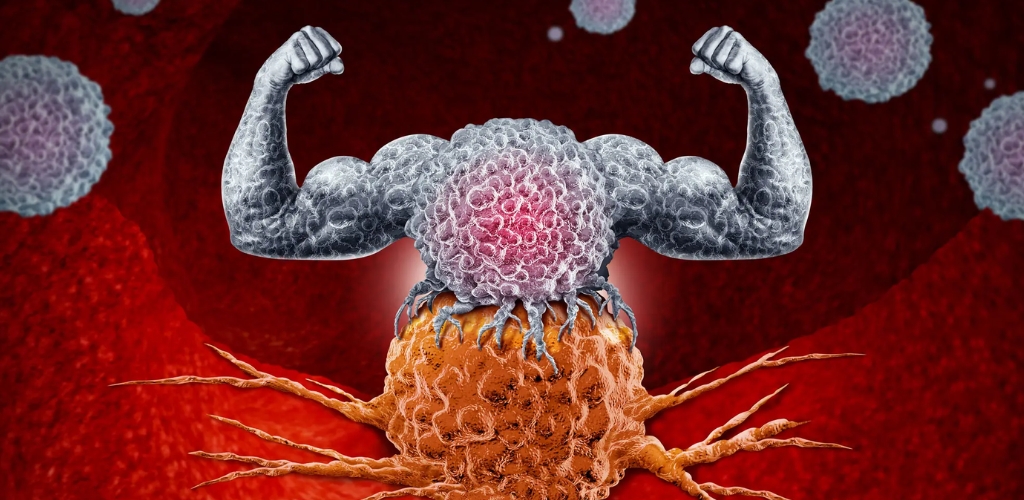Cancer immunotherapy has revolutionised the treatment landscape, offering hope to patients and transforming the way we approach cancer care. As researchers continue to push the boundaries of this exciting field, new frontiers are emerging that hold immense potential for improving patient outcomes and advancing our understanding of the immune system’s role in cancer. In this blog, we will explore some of the most promising areas of future research in cancer immunotherapy.
Combination Therapies: Synergistic Approaches
One of the most exciting frontiers in cancer immunotherapy is the exploration of combination therapies125. By combining different immunotherapeutic agents or integrating immunotherapy with traditional treatments like chemotherapy or radiation, researchers aim to harness the synergistic effects of these approaches2. This strategy has the potential to enhance the efficacy of immunotherapy, overcome resistance mechanisms, and provide more personalised treatment options for patients2.
Adoptive Cell Therapy: Empowering the Immune System
Adoptive cell therapy, particularly chimeric antigen receptor (CAR) T-cell therapy, has shown remarkable success in treating certain types of cancer. Researchers are now exploring ways to expand the application of CAR-T therapy to solid tumours and develop next-generation CAR-T cells with improved persistence, specificity, and safety profiles. Additionally, the use of tumour-infiltrating lymphocytes (TILs) and natural killer (NK) cells is gaining traction as a promising approach to harness the power of the immune system against cancer.
Biomarkers and Precision Medicine
Identifying reliable biomarkers is crucial for predicting response to immunotherapy and selecting the most appropriate treatment for each patient. Future research will focus on developing more accurate and comprehensive biomarker panels that incorporate genetic, epigenetic, and immunological factors. This will enable clinicians to make more informed decisions and tailor treatments to individual patients, moving towards a more personalised approach to cancer care.
Novel Targets and Mechanisms
Researchers are continuously exploring new targets and mechanisms to enhance the effectiveness of immunotherapy. This includes investigating immune checkpoint inhibitors targeting alternative pathways, such as TIM-3, LAG-3, and TIGIT, as well as exploring the potential of costimulatory agonists to boost immune responses. Additionally, the role of the tumour microenvironment and strategies to modulate it are gaining attention as potential avenues for improving immunotherapy outcomes.
RNA-based Vaccines and Therapies
The success of mRNA vaccines during the COVID-19 pandemic has sparked renewed interest in exploring the potential of RNA-based approaches in cancer immunotherapy. Researchers are investigating the use of mRNA vaccines to target tumour-specific antigens and induce a robust immune response2. Additionally, the development of self-amplifying RNA (saRNA) and small interfering RNA (siRNA) therapies holds promise for silencing immunosuppressive genes and enhancing the efficacy of immunotherapy.
Microbiome and Immunotherapy
The gut microbiome has emerged as a crucial factor influencing the response to immunotherapy. Future research will focus on understanding the complex interactions between the microbiome, the immune system, and cancer, with the goal of developing strategies to modulate the microbiome to enhance immunotherapy efficacy. This may involve the use of probiotics, faecal microbiota transplantation, or targeted interventions to manipulate the gut microbiome.
As we continue to unravel the complexities of the immune system and its interactions with cancer, the future of cancer immunotherapy holds immense promise. By exploring these frontiers and harnessing the power of cutting-edge technologies, researchers are poised to make significant strides in improving patient outcomes and ultimately, finding a cure for cancer.
What are the latest advancements in immunotherapy research ?
Immunotherapy has revolutionised the treatment landscape for various diseases, including cancer. Recent advancements in immunotherapy research have focused on improving treatment outcomes, enhancing patient safety, and expanding the scope of immunotherapy to more diseases. This article provides a comprehensive overview of the latest developments in immunotherapy research, highlighting the most promising areas of investigation.
Citations:
[1] https://academic.oup.com/immunotherapyadv
[2] https://link.springer.com/article/10.1007/s12672-021-00422-9
[3] https://www.mdpi.com/2673-5601/3/2/13
[4] https://www.frontiersin.org/journals/immunology/articles/10.3389/fimmu.2023.1248867/full
[5] https://www.mdpi.com/2072-6694/14/16/3972




